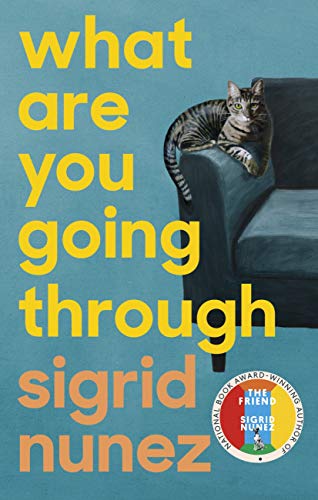
“Now, here was this woman who’d gone and done the difficult thing, my friend said to me. She had looked at the truth, and she had not flinched. She had spoken the unspeakable. She had named names. And here were all these people, gaslighting her. They weren’t being honest—not with her, not with themselves. Because they could not accept the truth, they had to bury it under a load of BS.”
Nunez, Sigrid. What Are You Going Through (p. 194). Penguin Publishing Group. Kindle Edition.
Sigrid Nunez has a knack for capturing the elements and delights of significant conversations and human connections. There is nothing like those deep, intimate understandings of our old friends—when we know what they’ve been through and we can stay up all night listening to what they are going through now. Some conversations stimulate us as we grow throughout our lives. Sometimes we overhear or hear about a conversation, and other times we are playing an active role.
What are you going through is a fantastic testimony to friendships, especially those that have lasted for decades. The narrator of the story introduces us to her nameless friend at the onset of the book and follows through on the friend’s story of terminal cancer and readiness for death as the book progresses. However, she also includes her observations and interactions with other characters. Some may call her inclusion of these “others” digressions. I think that including her impressions of her ex-lover’s pessimistic academic presentation, the Airbnb host’s insecurities, the gym lady’s struggles, and others were powerful ways to convey the spectrum of relationships in life. Although very sad, the uninspiring, dissatisfying relationship that the narrator has with the elderly lady who idolizes Sean Hannity is poignant in reminding us that some acquaintances can be poisonous to our psyche. Both this lady and another who is in therapy with her friend dare to remind us that some people’s death in our lives does not make us overly sad.
Impending death and death itself is a significant theme of this book, and it is handled not as something to be feared but as part of the life cycle. Without wasting any words, Nunez discusses metaphors for cancer and expresses cynicism for those who preach the power of positive thinking when reality indicates that all the positive thinking in the world cannot change reality. Sigrid Nunez takes pride in not overexplaining and treating her readers as intelligent. The words and analyses in this book are absolutely indicative of her philosophy of writing and truly thought-provoking.


